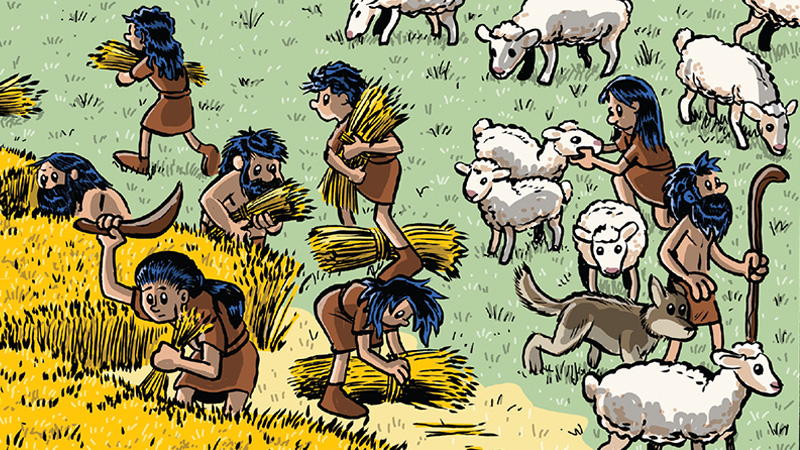Farming and Complexity
Driving Question: How did the transition to farming lead to new complexity?
Humans invented farming in different places around the world. How they did it and the effects of that transition are still felt today.
Learning Objectives:
- Describe how agriculture and complex societies changed the Earth.
- Explain how complexity increased as humans began farming.
Vocab Terms:
- agriculture
- civilization
- environment
- farming
- foraging
- society
Opener: Farming and Complexity
To teach this lesson step, refer to page 2 of the Lesson 5.1 Teaching Guide.
Our Openers and Closers Guide will provide more information about these short, but important activities at the beginning and end of each lesson.
Our online teacher community is a great resource for sharing best practices to get students talking in the classroom!
Humans foraged for close to 250,000 years. So what made people shift to farming? You’re about to find out!
A Farming Revolution
To teach this lesson step, refer to page 3 of the Lesson 5.1 Teaching Guide.
Looking to differentiate, modify or adapt this assignment? Check out our Differentiation Guide.
Not every revolution involves armies or uprisings. Sometimes a shift in something as basic as how we get our food leads to huge changes. This comic and activity help explain this new complexity.
Threshold 7
To teach this lesson step, refer to page 4 of the Lesson 5.1 Teaching Guide.
Check out our Video Guide for suggestions on incorporating videos in the classroom.
How did the move from foraging to farming make societies more complex? This video and activity will help you understand how the challenges of settling in a single location and growing food led to other innovations.
Closer: Farming and Complexity
To teach this lesson step, refer to page 5 of the Lesson 5.1 Teaching Guide.
Jingles can be annoying earworms that get stuck in your head. Test out your own jingle-writing skills using what you’ve learned in this lesson.




